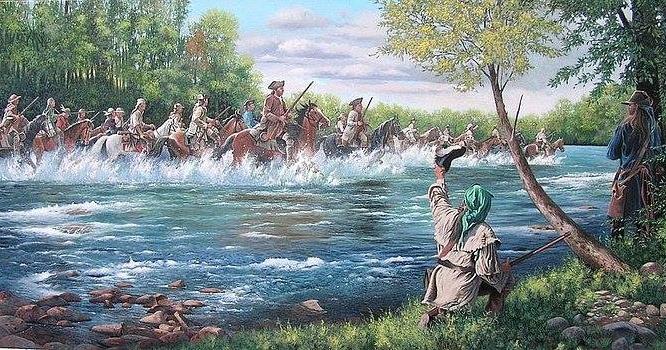Truro syndicate is what I've seen, but that may only refer to the general area where the group was from. It seems to have had Masonic members that stretched from Amherst, NS to New Glasgow, NS. Some of the same individuals had an interest in an other unrelated money pit story in Jolicure, New Brunswick (originally part of Nova Scotia). The sunk pit motif was used to draw investor interest there too. Why, and by whom, the Archibalds were ever lured to OI is unclear. Were they invited? Were they offered a lease? Had they come to try their hand at tackling a story whose details they recognized? These men were far from being fools, and they are not men who one might immediately assume were ready to drop their busy endeavors or stain their lofty reputations for no reason at all. I'd be very curious to know if they had not been privy to stories from within local Freemasonic circles about a special type of planning done by the Freemason Charles Morris there in 1762. This may have not ever registered with local imports. Anyone with any degree of education should have been immediately suspicious about the Money pit stories (if they were in fact already existing when the searchers got involved). Most of the back story is only given after 1848. Did they get sucked into a story, or are they the originators of it? It's not clear at all. Based only on Morris' plan and the existence of a body of knowledge about a Masonic plan for colonization that is modeled on geo-metry of the globe and symbolic considerations from Dee's paradoxical compass points, I suspect that the Archibalds already had an idea of what they were on the hunt for.
I think you’re way off-base here and going down rabbit holes.
It seems that Colonel Robert Archibald’s interest was purely financial and he probably learned of the possibility of finding treasure from Simeon Lynds. Genealogy records suggest that he and Simeon's father, Thomas were brothers-in-law. Robert had married Hannah Blair; Hannah’s sister, Rebecca had married Simeon's father Thomas.
The Truro Company didn’t exist before 1849, although it was a ‘follow-on’ from the Onslow Company, which didn’t exist before 1802. Some sources say that the operational side of the Truro Company’s renewed efforts to find treasure were led by Robert Archibald’s cousin Charles Dickson Archibald who was an experienced miner and manager of the Acadian Iron Works in Nova Scotia.
However, the ‘known’ members of the Truro Company (and I use the word ‘known’ advisedly) were:
Dr. Simeon Lynds.
Enough has been said about him in earlier posts, including that he probably wasn’t a doctor. Either a mistake, misunderstanding… or maybe he falsely portrayed himself as having a doctorate in the interests of enhancing his reputation.
Captain Anthony Vaughan.
The Vaughn family had migrated from Ireland and settled in The Halifax area of Nova Scotia. Anthony himself was from Western Shore, about 75 miles from Truro.
John Smith.
John’s father died when he was a youngster and his mother remarried to Neal McMullen, who owned a lot on Oak Island. They lived there from 1788 onwards. Smith is said to have owned the lot of land that the pit was found on from 1795 until his death in 1857. It is also said that he was involved in the 1803 Onslow Company expedition, and likely retained a right to a portion of any treasure found during subsequent attempts to find it.
[Note that both Smith and Vaughn were acquainted with Daniel McGinnis who allegedly found the depression in the ground that he believed related to the Captain Kidd treasure story around 1799 while he was looking for a location for a farm. They assisted McGinnis in the early digging.]
James Pitblado (as Foreman).
The Pitblado family had migrated from Scotland in 1848 and settled in Truro. Both he and his father were railway contractors.
Adams Archibald Tupper (as Foreman).
Tupper was from Upper Stewiacke, Nova Scotia, which is about 20 miles from Truro). He was a cousin of Robert Archibald.
John Gammel.
Gammel was also from Upper Stewiacke. He was Adams Archibald Tupper’s uncle.
Robert Creelman (as Manager).
Creelman was also from Upper Stewiacke. He was the great-grandson of Robert Archibald.
Jotham Blanchard McCully (as Manager and Drilling Engineer).
McCully was from Truro. He was a neighbour of Simeon Lynds.
No North Carolina connections here.
Personally, I think the vast majority of what is said about the treasure (as opposed to the people involved searching for it) is complete hokum and the History Channel’s show is a milk-cow for folklore that has little or no substantiation.





